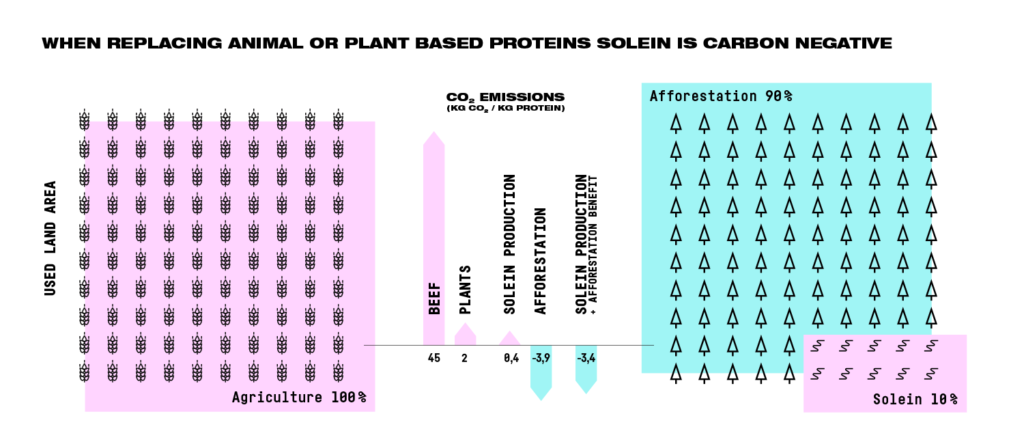Solar foods confronts the climate crisis

The technology developed by Solar Foods offers a solution to the apparently contradictory demands of increased food production and reduced CO2 emissions.
The Intergovernmental Panel on Climate Change report on the impact of global warming makes some worrying observations on how climate change will impact food production. The report notes that risks to food security such as drought are projected to increase with global warming of 1.5°C, which is expected to happen as soon as 2030 if current global warming trends continue. However, the report also describes low greenhouse gas-intensive food consumption as part of the solution to the problem.
New research from the Johns Hopkins Center for a Livable Future based at the Johns Hopkins Bloomberg School of Public Health, however, suggests that achieving an adequate, healthy diet in most low- and middle-income countries will require a substantial increase in greenhouse gas emissions and water use. Particularly important protein is in the first 1000 days and 5 years of life.
One of the authors of the Johns Hopkins Center for a Livable Future report (which focused on the impact of plant-forward diets) suggested that some people in low-income countries would need to consume more animal products to get enough protein in their diet.
These observations are highly relevant to the work we are doing at Solar Foods. One of the most important steps in reducing CO2 emissions resulting from rising demand for meat is popularising more environmentally friendly proteins.
Earlier this year, Harvard researchers published a report which found that almost half of all land in the UK is used for farming animals, yet it provides very little nutrition compared to the resources used. For every 100 calories fed to animals, only 12 calories is returned from consuming their flesh and milk.
Our single-cell protein, Solein®, requires a small percentage of the land that animal agriculture and plants use, but most importantly from a climate change perspective it emits negligible amounts of CO2 during production.
Research conducted by Hanna Tuomisto, Associate Professor at the University of Helsinki and her colleagues found that the minimum greenhouse gas emission level per kg of protein produced by Solar Foods was 0.4kg CO2 , compared to 45kg for beef and 2kg for best performing plants.
In addition, land that is released from agriculture and allowed to return to its ‘natural’ state will remove carbon from the atmosphere. When we consider the land that could be preserved if protein production from conventional farming was transitioned to Solein, our product’s already minimal CO2 footprint turns into a way to carbon sink.

Addressing the world’s growing demand for food while minimising climate change may seem like a daunting challenge, but there is always a solution. Liberating protein production requires innovative technology and Solar Foods is ready to meet this challenge.

